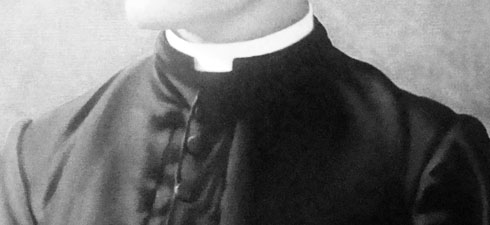Catholic commentators from Russell Shaw of The Catholic World Report to Fr. Daniel P. Horan with America magazine have rekindled a centuries old debate over clericalism following certain commentary by our Holy Father, Pope Francis. This debate has made its way around office water coolers and bible studies alike. To be honest I did not even know what clericalism was until I had a very thought-provoking discussion with a talented young priest in our archdiocese.
So I decided to search through Google and the Catechism to see what the heresy of clericalism was all about. After all, I did not want to be one of those clericalists who automatically believe whatever the Pope says. There are conditions for infallibility after all. But as I researched the topic, I could find no evidence that clericalism was even a heresy. However, I could find a number of anticlericalists whose actions and views were condemned by the Church. They were of the worst sort: Napoleon, Mussolini, and Calles (featured in the movie For Greater Glory) to name a few.
Furthermore, Horan and Shaw seemed to suggest that most clericalists tend to be of a traditional bent. Is that really the case? Traditionalist priests are not normally facing the people as presiders and improvising parts of the mass. Not to criticize, but it does appear awfully clericalistic to place so much emphasis and attention on the personality of the priest instead of the person of Christ. Meanwhile, one could argue that some of the more radical traditionalists, led by Archbishop Marcel Lefebvre, have been bucking the diocesan authorities for years in a spirit of anticlericalism. One forgets that Lefebvre complained of clericalism by way of another term, ultramontanism. Ultramontanism, which has meant various things to different people, usually refers to some sort of overemphasis on papal authority.
The point is not to strike up a debate over who is more clericalist (no comments appreciated—- on the matter) but to open up a real discussion on clericalism by figuring out what clericalism is and whether it is solemnly defined as a heresy or sin. In other words, what is the Church’s position on the matter?
From my limited research it does not seem clear that the Church has been teaching against clericalism officially and continuously for the past two thousand years – a prerequisite for dogma. In fact, there is little reason to believe that the Church has even bothered to specifically define it. (How can one make a definitive decision on a word without a universal definition?) Perhaps then, clericalism is not even a sin but instead a matter of style? There is also the possibility that there could be a golden mean between clericalism and anticlericalism, the virtue being priestly dignity.
I am no theologian and make no pretense to be. Wherefore, I have to look for help. A holy priest residing in a diocese to the west of us often suggests that we should read (Pope) Francis through (Pope Emeritus) Benedict. I would like to conclude by reading Francis through Francis. St. Francis of Assisi never became a priest but instead remained a deacon, presumably out of respect for the priesthood. According to St. Alphonsus Maria de Liguori, St. Francis of Assisi once said: “If I saw an Angel and a priest, I would bend my knee first to the priest and then to the Angel.” Setting aside terms and legalism, let us follow the example of the Seraphic Father and show like respect for our priests, bishops and popes.



